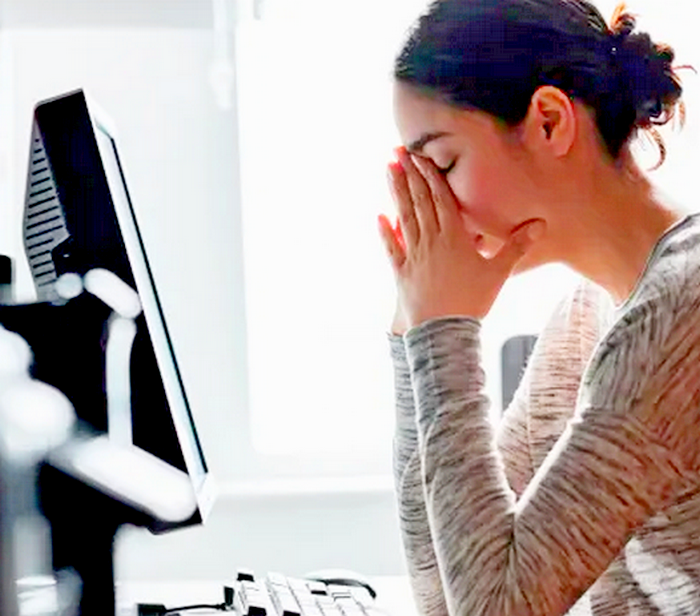Study finds link between poor mental health and long Covid

The Guardian - Ian Sample Science editor@iansampleWed 7 Sep 2022 16.00 BST
People who are highly stressed, anxious, lonely, or depressed before catching coronavirus are more prone to long Covid than those in good mental health, according to a major study.
High levels of distress before coronavirus infection raises the risk of long Covid, say Harvard researchers
A Harvard analysis of health data from nearly 55,000 US volunteers, most of whom were women, found that high levels of psychological distress before Covid infection raised the risk of long-term illness by 32%-46%.
The results highlight the urgent need to support people with mental health conditions and the importance of building mental health resilience more widely in the population to reduce the impact of long Covid.
“Depression, stress, and loneliness are very, very common, and the fact that they increase the risk of long Covid a fair amount is notable,” said Andrea Roberts, a senior research scientist at the Harvard TH Chan School of Public Health. “The associations were stronger with these risk factors than with other things we know to be associated with long Covid, such as obesity, hypertension, and asthma.”
A sizeable minority of people who catch Covid develop long-term, often debilitating ailments such as fatigue, breathlessness, brain fog and heart problems. About one in six middle-aged people and one in 13 younger adults in the UK have symptoms that persist for more than three months. There are thought to be multiple causes, ranging from abnormal immune responses to damaged tissue and residual virus lurking in the body.
While the relationship between mental well-being and long Covid is unclear, psychological distress can drive chronic inflammation and disrupt the immune system, potentially making people more vulnerable to long Covid, the researchers note in JAMA Psychiatry.
The Harvard team used questionnaires to rank the mental well-being of 54,960 US volunteers drawn from the Nurses’ Health Studies and the Growing Up Today study. Most of the volunteers were white female nurses aged 40 to 70. In April 2020, none had tested positive for Covid, but over the following year, more than 3,000 caught the virus and recorded their symptoms.
Those who scored higher on depression, stress, anxiety, loneliness and worry before catching Covid were more likely to report symptoms lasting more than one month. Such ongoing symptoms were 49% more likely in people with two or more forms of psychological distress compared with those who reported none. A similar finding was seen in people whose symptoms lasted at least two months.
All Covid symptoms apart from a cough and problems with smell or taste were more common in those who were distressed before they caught the virus. Depending on the type of distress, volunteers were 15% to 51% more likely to say long Covid impaired their daily lives compared with those with no mental health issues before testing positive.
The findings do not mean that mental health issues cause long Covid: more than 40% of those who developed long Covid in the study had no signs of distress before infection.
Mental health is known to affect some diseases. Stress has been linked to a greater susceptibility to common colds and other respiratory tract infections. Last year, researchers in London reported that poor pre-pandemic mental health raised the risk of long Covid, as did being older, female, overweight, in poor general health, and having asthma. A separate study of people with multiple sclerosis found that those with anxiety or depression took longer to recover from Covid.
Siwen Wang, an epidemiologist at Harvard and the first author of the study said it was important for people in poor mental health to have good access to high-quality care. “Future research should investigate whether better management of psychological distress can prevent people from getting long Covid or improve their symptoms,” she said.
Claire Steves, a professor in aging and health at King’s College London, who was part of a team that found a link between mental health and long Covid last year, said the Harvard study emphasized the need to build support for vulnerable people and to improve mental resilience in the population at large. “It’s important to state that this association does not mean that prior mental health issues cause long Covid, rather that mental health issues increase the vulnerability of individuals, due to decreased reserve so that physiological changes manifest in daily life.”
Adrian James, the president of the Royal College of Psychiatrists, said: “People with severe mental illness are at higher risk of developing a range of physical health problems, including long Covid. We are still learning about the impact of the virus on people’s physical and mental health but we know that long Covid can cause debilitating symptoms. People with long Covid must be able to access the healthcare they need, including appropriate specialist mental health provisions.
“It’s also vital that research on the impacts of long Covid in people with pre-existing mental illness continues if we are to ensure the best standard of care for patients down the line.”
Editors Comments:


HUMAN SYNTHESIS
COPYRIGHTS
Copy & Paste the link above for Yandex translation to Norwegian.
WHO and WHAT is behind it all? : >
The bottom line is for the people to regain their original, moral principles, which have intentionally been watered out over the past generations by our press, TV, and other media owned by the Illuminati/Bilderberger Group, corrupting our morals by making misbehavior acceptable to our society. Only in this way shall we conquer this oncoming wave of evil.
All articles contained in Human-Synthesis are freely available and collected from the Internet. The interpretation of the contents is left to the readers and does not necessarily represent the views of the Administrator. Disclaimer: The contents of this article are the sole responsibility of the author(s). Human-Synthesis will not be responsible for any inaccurate or incorrect statement in this article. Human-Synthesis grants permission to cross-post original Human-Synthesis articles on community internet sites as long as the text & title are not modified.
HUMAN SYNTHESIS